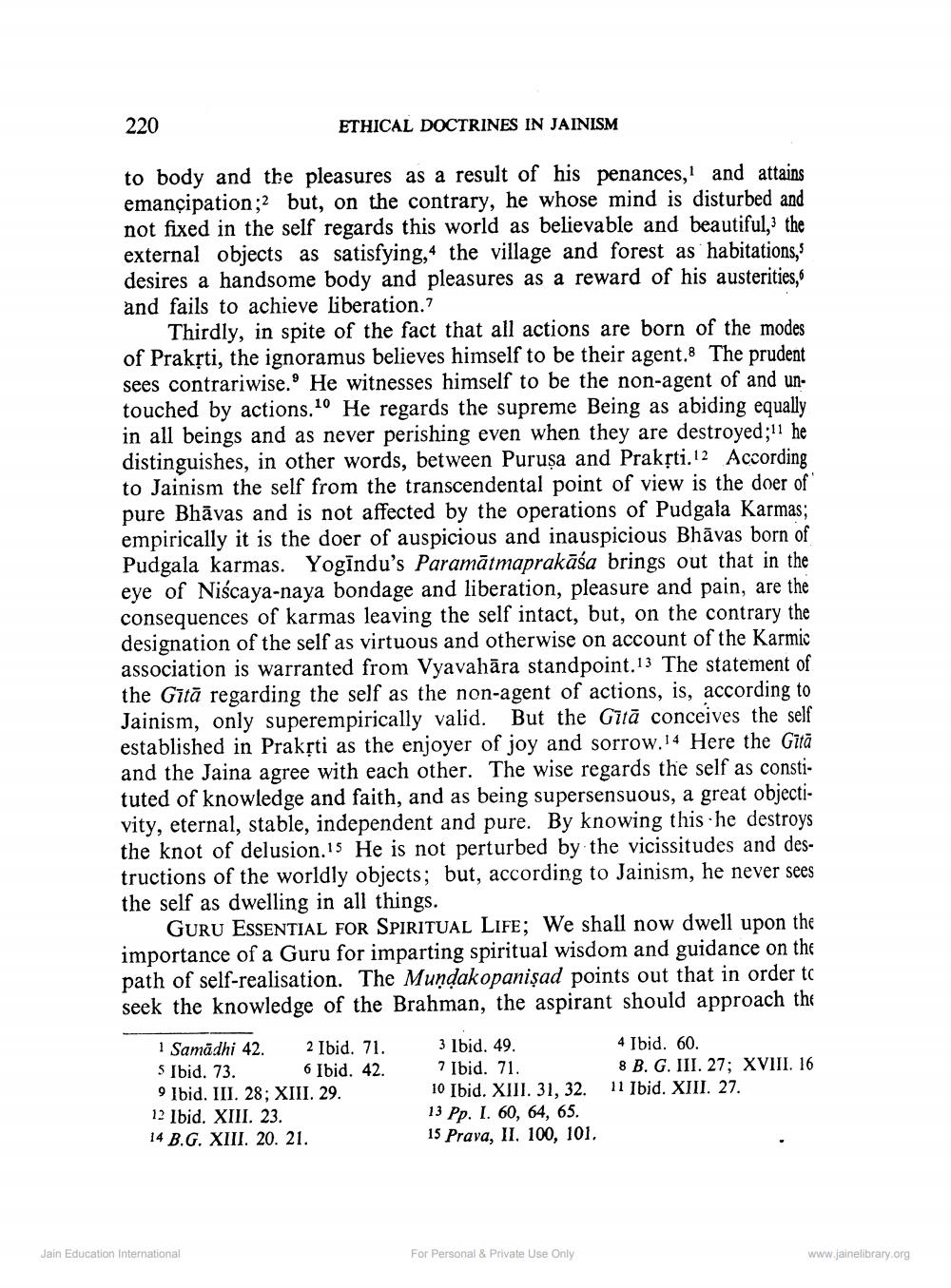________________
220
ETHICAL DOCTRINES IN JAINISM
to body and the pleasures as a result of his penances, and attains emancipation;2 but, on the contrary, he whose mind is disturbed and not fixed in the self regards this world as believable and beautiful, the external objects as satisfying, 4 the village and forest as habitations, desires a handsome body and pleasures as a reward of his austerities, and fails to achieve liberation.?
Thirdly, in spite of the fact that all actions are born of the modes of Prakrti, the ignoramus believes himself to be their agent. The prudent sees contrariwise. He witnesses himself to be the non-agent of and untouched by actions.10 He regards the supreme Being as abiding equally in all beings and as never perishing even when they are destroyed;11 he distinguishes, in other words, between Purusa and Praksti.12 According to Jainism the self from the transcendental point of view is the doer of pure Bhāvas and is not affected by the operations of Pudgala Karmas; empirically it is the doer of auspicious and inauspicious Bhāvas born of Pudgala karmas. Yogīndu's Paramātmaprakāśa brings out that in the eye of Niścaya-naya bondage and liberation, pleasure and pain, are the consequences of karmas leaving the self intact, but, on the contrary the designation of the self as virtuous and otherwise on account of the Karmic association is warranted from Vyavahāra standpoint.13 The statement of the Gitā regarding the self as the non-agent of actions, is, according to Jainism, only superempirically valid. But the Gitā conceives the self established in Prakrti as the enjoyer of joy and sorrow.14 Here the Gitā and the Jaina agree with each other. The wise regards the self as constituted of knowledge and faith, and as being supersensuous, a great objectivity, eternal, stable, independent and pure. By knowing this he destroys the knot of delusion.is He is not perturbed by the vicissitudes and destructions of the worldly objects; but, according to Jainism, he never sees the self as dwelling in all things.
GURU ESSENTIAL FOR SPIRITUAL LIFE; We shall now dwell upon the importance of a Guru for imparting spiritual wisdom and guidance on the path of self-realisation. The Mundakopanişad points out that in order to seek the knowledge of the Brahman, the aspirant should approach the
1 Samādhi 42. 2 Ibid. 71. 5 Ibid. 73. 6 Ibid. 42. 9 Ibid. III. 28; XIII. 29. 12 Ibid. XIII. 23. 14 B.G. XIII. 20. 21.
3 Ibid. 49. 7 Ibid. 71. 10 Ibid. XIII. 31, 32. 13 Pp. I. 60, 64, 65. 15 Prava, II, 100, 101,
4 Ibid. 60. 8 B. G. III. 27; XVIII. 16 11 Ibid. XIII. 27.
Jain Education International
For Personal & Private Use Only
www.jainelibrary.org




